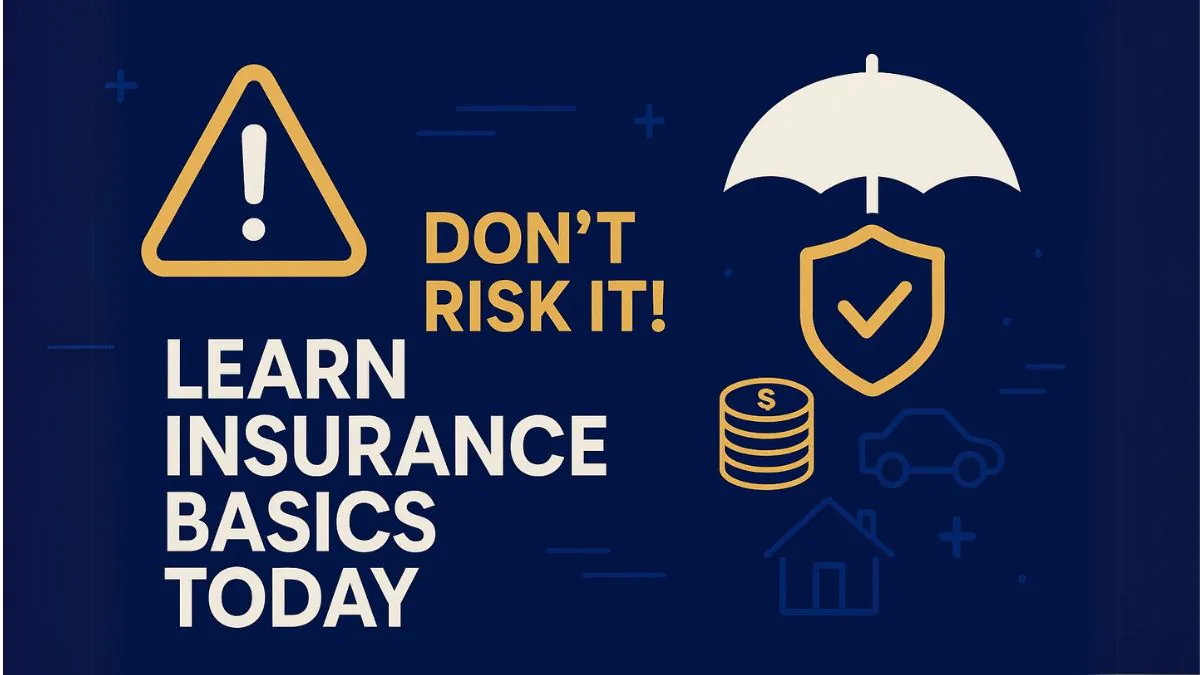Insurance Planning 101: A Beginner’s Guide to Securing Your Financial Future

Table of Contents
ToggleShare this article ↷
Insurance planning might sound like a daunting task, but it’s just a smart way to protect your hard-earned paisa and secure your future. For beginners in India, diving into insurance can feel like navigating a crowded bazaar-overwhelming but full of possibilities.
Whether you’re a young professional, a new parent, or just starting your personal finance journey, this guide will break down how to start insurance planning for beginners in India. Let’s make it simple, practical, and desi-style relatable!
Read more: Why Disability Insurance Matters for the Self-Employed
Why Insurance Planning Matters for Your Personal Finance
Imagine building your dream house-your financial future. Insurance is the strong foundation that keeps it safe from storms like unexpected illnesses, accidents, or losing a loved one. Without it, one setback could wipe out your savings. Insurance planning ensures your family’s financial security, giving you peace of mind to chase your goals, whether it’s buying a new bike or funding your kid’s education.
In India, where medical costs are skyrocketing faster than a rocket and life’s uncertainties are as common as monsoon rains, insurance is a must-have. It’s not just about protection; it’s about building a solid personal finance strategy.
Steps to Create an Insurance Plan for Financial Security
Ready to get started? Here’s a beginner-friendly roadmap to kickstart your insurance planning:
- Assess Your Needs: Think about your life stage-are you single, married, or a parent? List financial responsibilities like supporting parents or paying EMIs. This helps decide your coverage amount.
- Choose the Right Insurance:
- Life Insurance: Protects your family if you’re no longer around. Term insurance is affordable and ideal for beginners.
- Health Insurance: Covers medical emergencies, saving your savings. Look for plans with hospitalization and critical illness coverage.
- Accident Insurance: Covers injuries or disabilities-key if you’re the breadwinner.
- Set a Budget: Insurance shouldn’t burn a hole in your pocket. Allocate 10-15% of your income for premiums. Compare plans online for affordable options.
- Research Plans: Use trusted sources like the Insurance Regulatory and Development Authority of India (IRDAI) for reliable policy information.
- Consult an Advisor: If confused, a certified advisor can guide you to avoid shady policies.
- Review Regularly: Life changes-marriage, kids, new job. Update your plan every 2-3 years.
Best Insurance Plans for Beginners in India
Not sure which plans to pick? Here are beginner-friendly options:
- Term Life Insurance: LIC’s New Jeevan Anand or HDFC Life Click 2 Protect offer high coverage at low costs. A ₹1 crore plan might cost ₹500-1000/month.
- Health Insurance: Star Health’s Family Health Optima or Apollo Munich’s Easy Health Plan cover families affordably. Look for cashless hospitalization.
- Government Schemes: The Pradhan Mantri Jeevan Jyoti Bima Yojana offers ₹2 lakh life coverage for just ₹436/year. Ayushman Bharat PM-JAY provides free health coverage for eligible families.
Insurance Planning Tips for First-Time Policy Buyers
Buying your first policy? Don’t fall for flashy ads. Stay sharp with these tips:
- Start Early: Younger age means cheaper premiums. A 25-year-old pays less than a 40-year-old for the same coverage.
- Read the Fine Print: Check exclusions and claim processes to avoid surprises.
- Avoid Over-Insurance: Don’t buy more coverage than needed. A ₹50 lakh term plan might suffice for singles.
- Go Digital: Compare plans on platforms like IRDAI’s website for transparency.
- Check Claim Settlement Ratio: Choose insurers with ratios above 95%, listed in IRDAI’s annual reports.
Beginner’s Guide to Life and Health Insurance Planning
Life insurance is your family’s safety net. A term plan is simple-pay a small premium for a big payout if you’re gone. For example, a ₹1 crore term plan for a 30-year-old costs about ₹10,000/year. Health insurance shields you from hospital bills. A ₹5 lakh family floater plan can cover you, your spouse, and kids for around ₹12,000/year. Combine both for a balanced plan.
Pro tip: Avoid mixing insurance with investment. Skip ULIPs as a beginner-they’re complex and often have high fees. Stick to pure protection plans.
Key Takeaways
- Insurance planning is your ticket to financial security-don’t skip it!
- Start with term life and health insurance for maximum protection.
- Compare plans, read reviews, and stick to your budget.
- Use government schemes for affordable options.
- Review your plan every few years to stay covered.
Got a question or want to share your insurance planning tips? Drop a comment below or share this guide with your friends to help them secure their financial future!
Disclaimer
Well Returns is not a financial adviser. The content provided here is for informational purposes only and is intended to offer a brief overview and general knowledge. It is not a substitute for professional financial advice. Please consult a qualified financial adviser before making any financial decisions or investments.
Allocate 10-15% of your monthly income for premiums. For example, if you earn ₹50,000/month, aim for ₹5,000-7,500 for life and health insurance combined. Start small and scale up as income grows.






